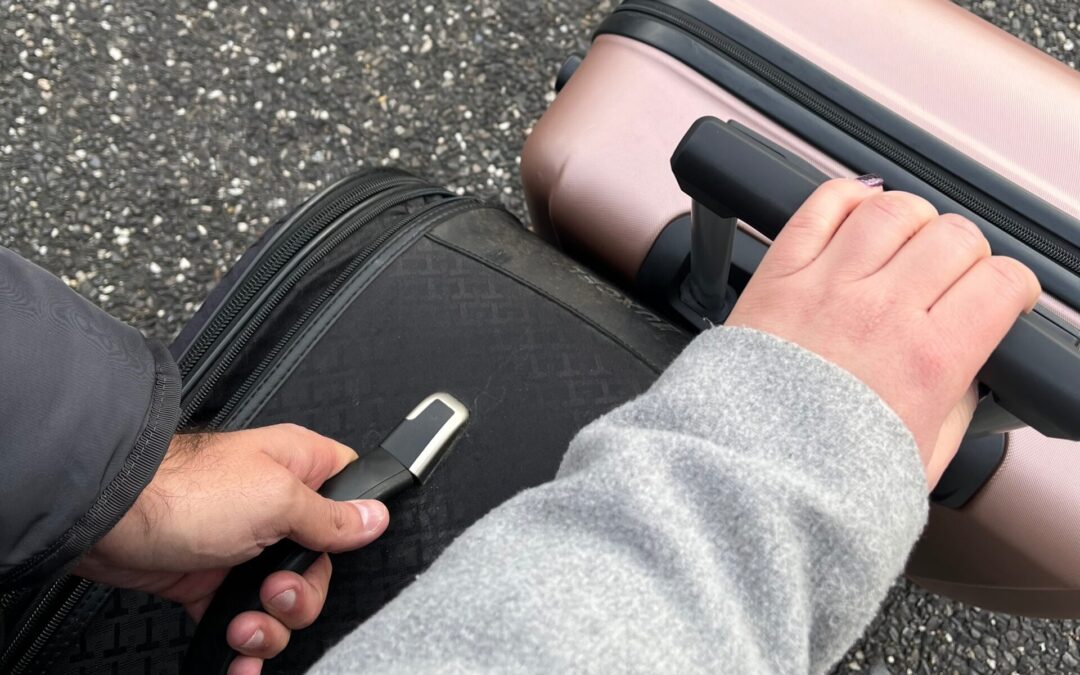Your dream is to live abroad, to experience other cultures? To get better work and a better financial situation?
Or your loved one lives in a different country and you decided to join them? Maybe you want to live by the beach/at the mountains/on the south/on the north…
Then this one is for you.
There are plenty of reasons why you would want to pack your things and move to a new country. All of them could be a great, legitimate motivator. But do you know how to get there?
What to do when you want to go but there is nothing fixed yet? How to deal with international moving, finding accomodation, solving paperwork and adjusting to your new home? And how will you integrate into your new country?
Fear not, there is help.
While one blogpost cannot cover everything, this post is dedicated to go through the first steps and the thought process of an international move.
Ready to dive in? Let’s go!
When I first moved abroad, it was for a one semester scholarship program, in the Czech Republic. I had no idea what I am getting into and the whole thing just scared me to death. I travelled with two big luggages and a handful of hope for a good time. When I packed my suitcase, I packed a bunch of unnecessary things (I wanted to take a cooking pot with me…) and missed out on stuff which I would need later (like a super warm winter coat). I was afraid that I will not be able to make friends and that I will get lost in the foreign city. I also spoke no Czech. I remember only learning the basic greetings and how to ask for help while I was already on the train towards the Czech Republic.
While this worked out well for me at that time (I was 20 and in university), I now know that preparation should be much more significant before a move. And now I would not dare to go somewhere without completing the necessary steps.
So what can you do to prep better?
First step is to figure out your WHY. Now, this can be many many things – but it gets exponentially important when you are not moving alone, or moving after someone else. You need to find your own motivator, something internal, which will get you through the tough parts. What is there for you? What is in this move that keeps you pushing? What will you enjoy about living in the new place?
Knowing your own drivers will help you adjust your plans and find the best place for you – even if the country was not your first choice. When you end up in a place you don’t like (because maybe you moved after your partner), knowing your why will help you get through the hard days and keep your focus on the most important things.
More about finding your why and figuring out where to move in my reels – watch them here on Instagram. I made a whole series about the first steps to move abroad!
This WHY will determine where you will move and what will be important for you in the new place.
Sooo… WHERE will you move? You need to get to know your future country. The culture, the standard way of living, the system and the nature. Will they have the weather you actually like? Is your favorite foods, hobbies available there? Do you already speak the local language, or can you learn it? Do some research and make sure to check these things. Find things that will bring you joy, but also things that you can relate to.
My adjustment to live in the Czech Republic was smooth, because my culture (Hungarian) is quite close to the Czech one. Of course there were plenty of differences – and I needed to learn a new language – but I could find most of the foods or ingredients I liked, the weather was totally similar and the customs not that different either. Now, when I live in Belgium, it is much harder, I can’t find many food stuff I like and the weather is just… grey.
The next step is to look at the BASICS: are you moving alone? With family? With pets? This will show you what paperwork you will need to deal with – and what will you need to look for. Doctors, vet, schools, workplace, apartment or house… And make sure that you and your loved ones are all on the same page. This will help you manage the expectations.
Speaking of expectations: what do you think will happen once you made the big move?
Top tip for managing expectations
Sit down with your family members and talk about how you imagine the future in the new country. You can do it alone as well by journaling. Where do you see yourself live? In a house? Big apartment? In the city centre or out in nature? Will you rather commute to work and have a nice place out of the city? Or you rather get home early and eat dinner together?
Talking about these questions together will help you connect and build a vision which you can all accept and support.
Still sticking with the expectations, you need to think about the TIME. This means both the timing of your move and the length of your stay. Do you need to adjust to the school start? Is it easier if you move with the start of the calendar year? And how long do you plan to stay? Do you move for a few years or forever? Maybe you even plan to move around and try different countries. Or just want to earn more and save as much as you can – so you can retire in your home country later.
No matter what you prefer, it needs to be discussed in advance. This will influence your approach to basically everything in your new place. People who plan to move around tend to only connect with other expats – while immigrants (who are there to settle down) will try to immerse themselves in the local community and build lasting local relationships.
As an expat family, we know we will move again, so we actually kept our moving boxes from our last move, which is a constant reminder for me not to grow too deep roots in our current place. We don’t buy big furniture items and generally try to keep a smaller amount of stuff, because we know that this is not our last home.
If I would settle down in a country, I would probably want to have a garden – but for now, I need to be content with only a few plants on the balcony.
These are some of the things which seem small but have a big impact on your mental health in the long run. The constant alertness, or the lurking expat burnout are just a few things which await you, if you are not intentional about your move.
Actually, this is something that most people leave out of the preparation: to take care of their mental health – and get ready for the hard times after the move. This is the main topic I help my clients with. Not just for the preparation phase, but during the first year as well – or when they need to figure out their path abroad. As a first step, you can listen to the first 2 podcast episodes of the Coachify podcast, focusing on this topic, which we created with the therapist, Anca Siminea.
These big changes, the culture shock, all the bureaucracy tasks, the new language and the loneliness can take a toll on your mental health. The big crash comes around 3-6 months after the move, but not always. After our move to Belgium, mine arrived in 2 weeks… so you can’t really know when it will happen. It is not really a question when it comes, but how you will handle it. Being aware and preparing in advance will make the whole experience easier for you. So make sure that you think of your soul as well, not just of your to do list. Or put “mental health check” on your to do list as well 😉
To not miss any of the important steps during your big move, including these questions, use my handy master checklist! You can get it by filling the form below.
Happy prepping!


